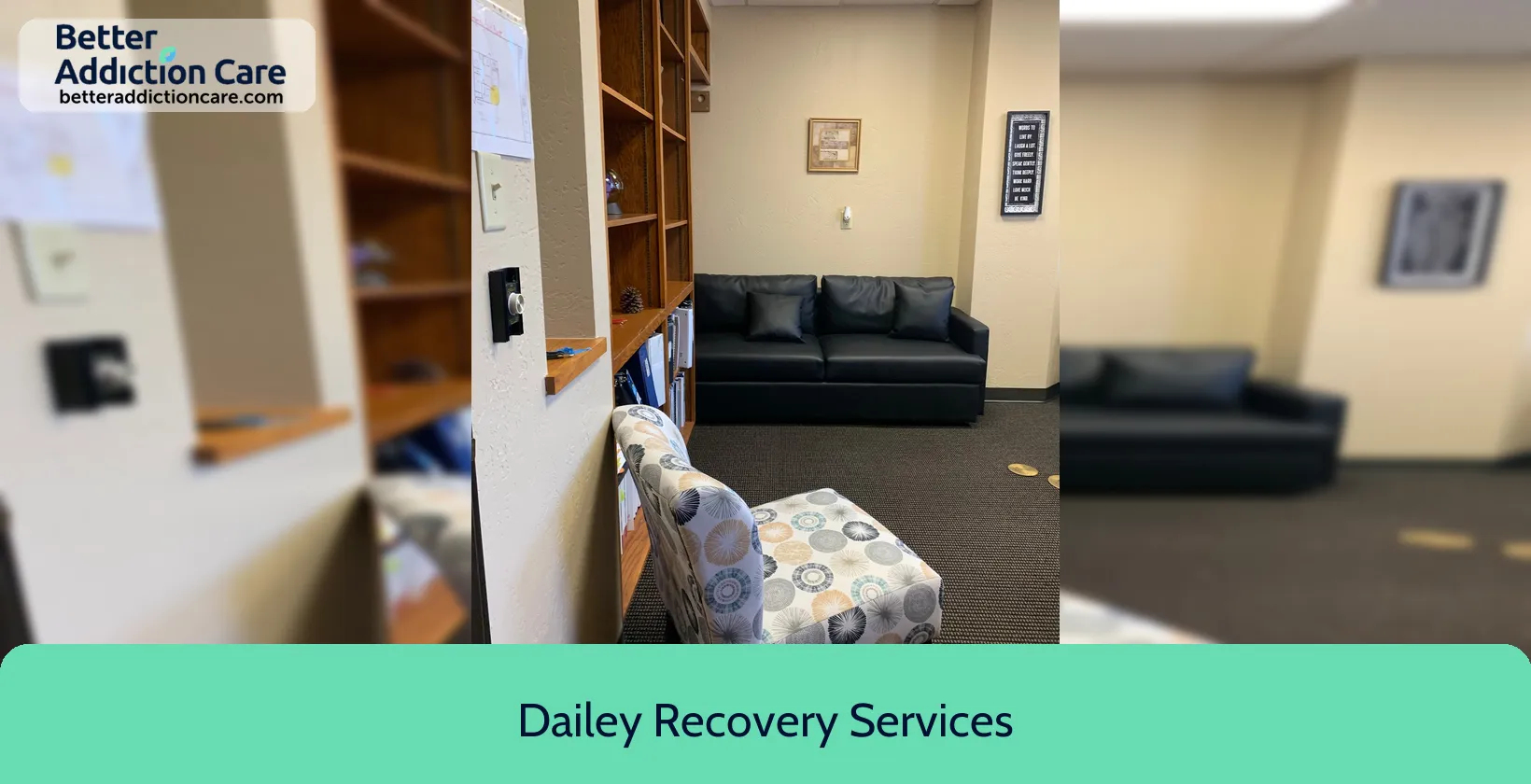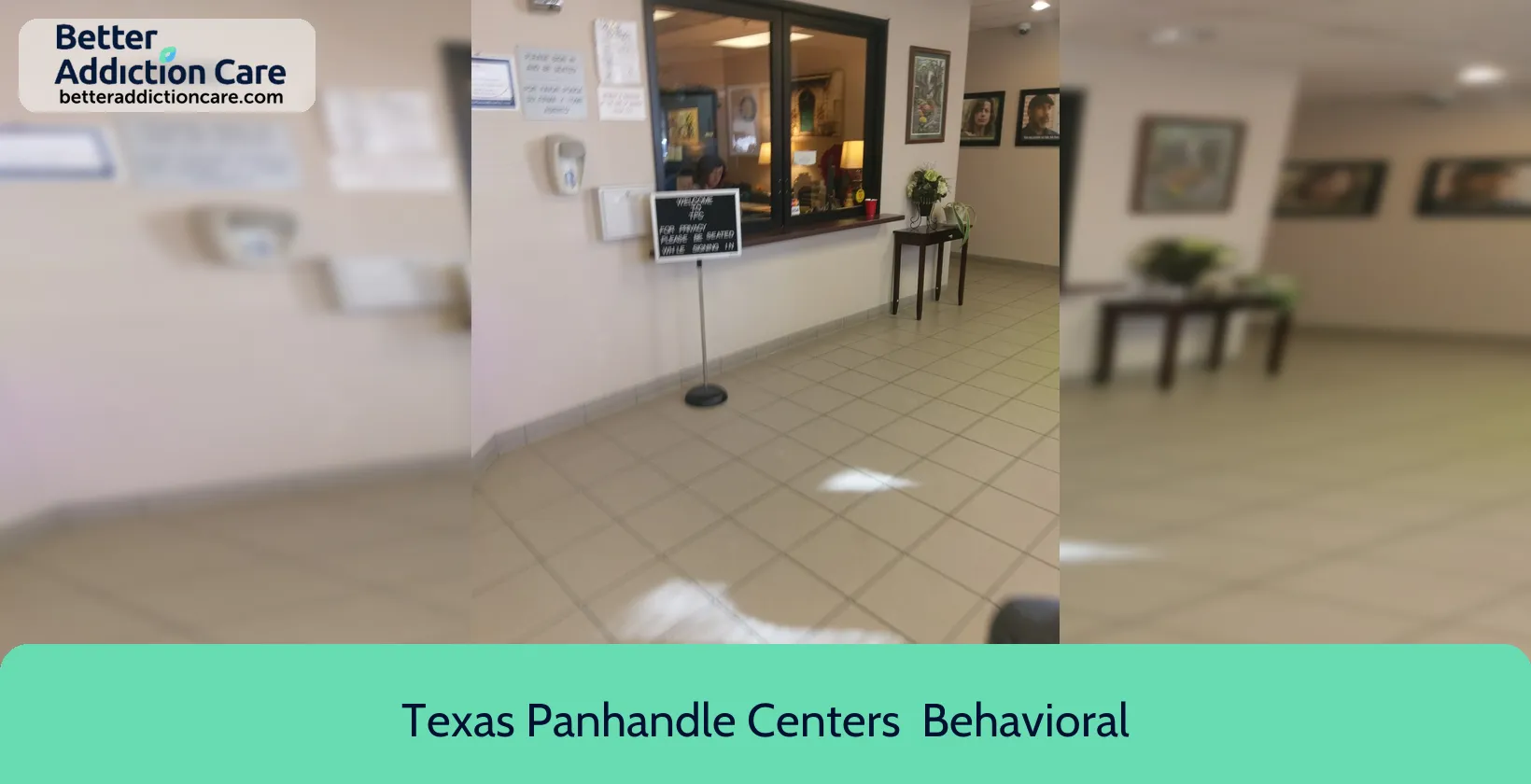Amarillo VA Healthcare System - West Amarillo Boulevard
Overview
Amarillo VA Healthcare System - West Amarillo Boulevard is a mental health treatment center for people seeking treatment near Potter County. As part of their treatment modalities for recovery, Amarillo VA Healthcare System - West Amarillo Boulevard provides couples/family therapy, group counseling, and cognitive behavioral therapy during treatment. Amarillo VA Healthcare System - West Amarillo Boulevard is located in Amarillo, Texas, accepting cash or self-payment for treatment.
Amarillo VA Healthcare System - West Amarillo Boulevard at a Glance
Payment Options
- Cash or self-payment
- Medicaid
- Medicare
- State-financed health insurance plan other than Medicaid
- Private health insurance
Assessments
- Screening for tobacco use
- Comprehensive mental health assessment
- Comprehensive substance use assessment
Age Groups
- Seniors or older adults
- Young adults
- Adults
- Seniors
Ancillary Services
- Intensive case management
- Case management service
- Chronic disease/illness management
- Court-ordered outpatient treatment
- Diet and exercise counseling
Highlights About Amarillo VA Healthcare System - West Amarillo Boulevard
6.80/10
With an overall rating of 6.80/10, this facility has following balanced range of services. Alcohol Rehabilitation: 8.00/10, Drug Rehab and Detox: 6.00/10, Insurance and Payments: 6.00/10, Treatment Options: 7.21/10.-
Alcohol Rehabilitation 8.00
-
Treatment Options 7.21
-
Drug Rehab and Detox 6.00
-
Insurance and Payments 6.00
Treatment At Amarillo VA Healthcare System - West Amarillo Boulevard
Treatment Conditions
- Mental health treatment
- Alcoholism
- Substance use treatment
- Co-occurring Disorders
Care Levels
- Outpatient
Treatment Modalities
- Couples/family therapy
- Group counseling
- Cognitive behavioral therapy
- Dialectical behavior therapy
- Integrated Mental and Substance Use Disorder treatment
Ancillary Services
Languages
- Spanish
Additional Services
- Pharmacotherapies administered during treatment
- Mentoring/peer support
- Metabolic syndrome monitoring
Special Programs
- Clients with co-occurring mental and substance use disorders
- Veterans
- Active duty military
- Members of military families
- Criminal justice (other than DUI/DWI)/Forensic clients
Get Help Now
Common Questions About Amarillo VA Healthcare System - West Amarillo Boulevard
Contact Information
Other Facilities in Amarillo

7.51

6.68

6.80

6.74

6.79

6.92

6.89

6.68
DISCLAIMER: The facility name, logo and brand are the property and registered trademarks of Texas Panhandle Centers - Behavioral and Developmental Health, and are being used for identification and informational purposes only. Use of these names, logos and brands shall not imply endorsement. BetterAddictionCare.com is not affiliated with or sponsored by Texas Panhandle Centers - Behavioral and Developmental Health.

